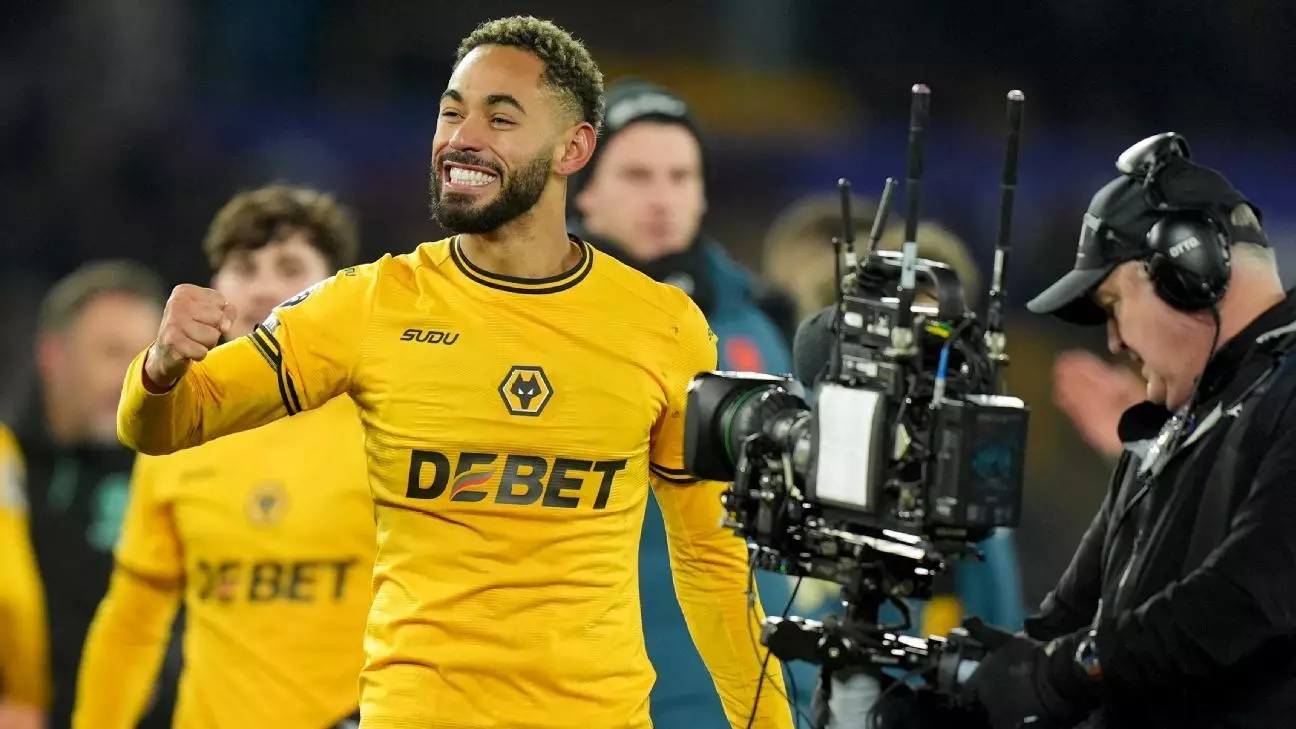The summer transfer window is fast approaching, and football clubs worldwide are gearing up for one of the most critical periods on their calendars. Among the notable names circling the rumor mill, Matheus Cunha of Wolves remains a striking focal point. Not only has Cunha made a significant impact on the pitch, scoring 13 goals and assisting four this season, but he has also cut a complex figure within the bustling trade environment of professional football. Manchester United are reportedly set to vie for his signature, lending credence to the belief that transformative shifts may soon be underway in the English Premier League.
Cunha initially struggled to establish himself after arriving at Wolves, with some experts deeming his early form less than impressive. However, his recent performances have unequivocally marked a resurgence, making it clear why both Manchester United and Arsenal are interested. Despite signing a contract extension that safeguards his current club’s investment with a hefty £62.5 million release clause, his trajectory suggests that his time at Wolves is nearing its end. His potential exodus signals a broader trend in football: players seeking progressive avenues rather than stagnating in teams battling relegation.
The Dynamic of Contract Renewals
As clubs like Bayern Munich navigate the turbulence of contract negotiations, the stakes rise exponentially. Leroy Sané’s ongoing discussions regarding an extension highlight the delicate balance clubs must maintain between retaining talent and fending off rival interests. Arsenal, in particular, appear to be leveraging his situation to bolster their own squad. The uncertainty surrounding Kingsley Coman’s future is equally telling; Bayern are reportedly considering Marseille’s promising Luis Henrique as a potential replacement should the Frenchman take his leave.
In contrast, the situation at Paris Saint-Germain has garnered attention with Marcus Rashford’s name emerging once more after a previous flirtation with the club. His performances on loan at Aston Villa have reignited the interest, particularly with PSG’s scouting network casting a wider net again. With a reported £40 million exit clause dangling before Villa, the combination of financial implications and performance metrics makes this an evolving story ripe with twists.
Youthful Ambitions and Long-Term Strategies
Meanwhile, clubs like Manchester City are positioning themselves strategically by scouting numerous players to fill gaps left by departing stars. The names of Morgan Gibbs-White and Florian Wirtz are making rounds as potential successors to Kevin De Bruyne, whose time at the club seems set for an exit. Despite City’s financial prowess and tactical depth, the pressure is on to secure promising youth players who can blend seamlessly into their playstyle, a move reflective of the changing tides in football recruitment strategies.
Yet, it’s cities like Milan that embody the quintessential dichotomy of performance versus potential. Current standings in Serie A indicate a significant risk of missing out on UEFA Champions League qualifications. Such a scenario could see the exodus of key players like Theo Hernández and Fikayo Tomori as AC Milan looks to revamp its roster. The intricate web of desperation a club feels when grappling with the potential of losing valuable players acts as a cautionary tale in the cutthroat world of football—where results frequently dictate the strategies of recruitment and retention.
The Role of Discipline in Player Trajectory
One cannot ignore the narrative that discipline plays in a player’s journey. Take Matheus Cunha, for instance; while his goal conversion has seen an impressive leap, his off-the-pitch conduct has raised eyebrows. Instances of disciplinary action, such as suspensions for on-field misconduct, could jeopardize his future at prestigious clubs. The scrutiny of player behavior often colors the perspectives clubs hold regarding prospective signings, adding an additional layer of complexity to the transfer market dynamic.
The intertwining of talent and conduct forms an indelible part of sports narratives, making the task of management increasingly intricate. As clubs seek to bolster their squads, the merging of talent scouting with a player’s temperament creates a more comprehensive review process. In an age where data analytics and on-field metrics are king, clubs must also account for the less quantifiable traits that make for a cohesive team spirit.
Ambition Meets Uncertainty in the Transfer Market
With the summer transfer window looming, as fascination mounts around each potential move, it’s clear that clubs must not only innovate their footballing strategies but also remain vigilant in executing these plans efficiently. Names continue to circulate, clubs weigh their options, and the urgency to act becomes ever more pressing.
Ultimately, football is not merely a game; it is a business driven by ambition, strategy, and the relentless pursuit of excellence. The narratives forged in these months will help shape not just the upcoming season, but also set the foundations for the years to come, revealing how clubs position themselves in an increasingly competitive environment.

Leave a Reply